
Black History, Government
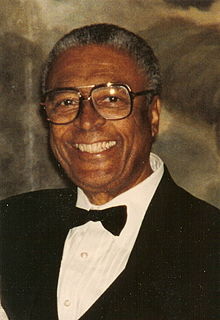
George L. Brown
George Leslie Brown (July 1, 1926 – March 31, 2006) was an American politician. He served in the Colorado Senate from 1955 to 1974 and as the 40th Lieutenant Governor of Colorado from 1975 to 1979. He was also a Sr. Vice President with Grumman Corporation. During World War II, he served as a Tuskegee Airman. Together with California’s Mervyn Dymally, he was one of the first two Black lieutenant-governors sinceReconstruction and outside of any southern state.
Growing up on a farm in Kansas, Brown was a star athlete in basketball, football and track before graduating from Lawrence Liberty Memorial High School in 1944. Brown graduated from the University of Kansas in 1950 with a B.S. in journalism. He also did graduate work at Harvard Business School, the University of Colorado and the University of Denver. (more…)
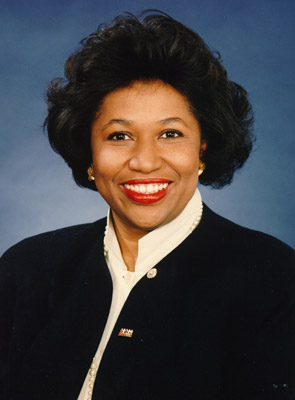
Black History, Firsts, Government
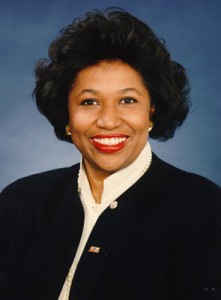
Carol Moseley-Braun
The first African-American woman Senator, Carol Moseley-Braun was also only the second black Senator since the Reconstruction Era. “I cannot escape the fact that I come to the Senate as a symbol of hope and change,” Moseley-Braun said shortly after being sworn in to office in 1993. “Nor would I want to, because my presence in and of itself will change the U.S. Senate.” During her single term in office, Senator Moseley-Braun advocated for civil rights issues and for legislation on crime, education, and families.
Carol Moseley was born in Chicago, Illinois, on August 16, 1947. Her parents, Joseph Moseley, a policeman, and her mother, Edna (Davie) Moseley, a medical technician, divorced in 1963. The oldest of the four Moseley children in a middle-class family, Carol graduated from Parker High School in Chicago and earned a B.A. in political science from the University of Illinois in 1969. (more…)
Black History, Government
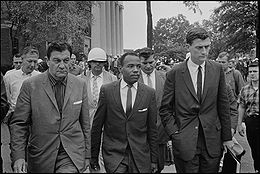
Chief U.S. Marshal James McShane (left) and John Doar (right) of the Justice Department escorting James Meredith to class at Ole Miss
The Ole Miss riot 1962 was a riot fought between Southern segregationist civilians and federal and state forces as a result of the forced enrollment of black student James Meredith at the University of Mississippi (known affectionately as Ole Miss) at Oxford, Mississippi.
On October 1, 1962, James H. Meredith became the first black student at the University of Mississippi, after being barred from entering on September 20 and several other occasions in the following days. His enrollment, publicly opposed by segregationist Governor Ross Barnett, sparked riots on the Oxford campus, which required the U.S. Marshals.
Later on (federal) U.S. Army military police from the 503rd Military Police Battalion were sent by President John F. Kennedy. Troops from U.S. Border Patrol and Mississippi National Guard were called in, as well. The involvement of federal forces was opposed for a long time by the President and Attorney General Robert Kennedy. (more…)
Black History, Government, Military
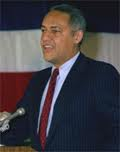
Cliffors Alexander Jr. first African American Secretary of the Army
Clifford Alexander Jr. was born and raised in Harlem prior to his education at Fieldstone Ethical Culture, Harvard (1955) and Yale Law School (1958). Early influences were his mother and father. Edith served as the Deputy Director then Executive Director of the Mayor’s Committee on Unity under NYC Mayor LaGuardia. The Mayor’s Committee on Unity was the precursor to the NYC Commission on Human Rights and fought discrimination in employment practices, public accommodations, and housing.
His father was one of several Harlem community leaders who founded the Carver Bank in response to discriminatory lending practices and worked to integrate the Riverton Apartments while serving as its manager. Alexander joined the National Guard after Law School and began working as an attorney in New York. He was asked to come to Washington D.C. in 1963 to join the staff of the National Security Council in the Kennedy administration. (more…)
Black History, Government

Edward W. Brooke
Edward W. Brooke’s election to the U.S. Senate in 1966 ended an 85-year absence of African-American Senators.
A Senator from Massachusetts; born in Washington, D.C., October 26, 1919; attended the public schools of Washington, D.C.; graduated from Howard University, Washington, D.C., in 1941; graduated, Boston University Law School 1948; captain, United States Army, infantry, with five years of active service in the European theater of operations; chairman of Finance Commission, city of Boston 1961-1962.
He was elected attorney general of the Commonwealth of Massachusetts in 1962; reelected in 1964; elected as a Republican to the United States Senate in 1966; reelected in 1972 and served from January 3, 1967, to January 3, 1979; unsuccessful candidate for reelection in 1978; first African American elected to the Senate by popular vote; lawyer; awarded the Presidential Medal of Freedom on June 23, 2004; is a resident of Miami, Fla.
Black History, Government
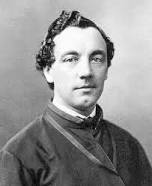
Father Patrick Francis Healy
Patrick Francis Healy (February 27, 1830 – January 10, 1910) was the 29th President of Georgetown University known for expanding the school following the American Civil War. He was accepted as and identified as Irish-American. Healy Hall, a National Historic Landmark, was constructed during Healy’s tenure and is named after him.
In the 1960s the history of Healy’s mixed-race ancestry became more widely known, and he was recognized as the first American of African ancestry to earn a PhD; the first to become a Jesuit priest; and the first to be president of a predominantly white college.







